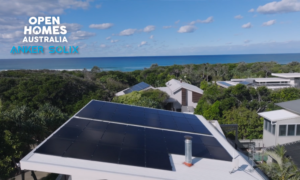USA-based SEMI PV Group has released a report supporting the development of feed-in tariffs globally as the most effective way to ensure sustained growth for the PV industry.
The white paper points out feed-in tariffs are also easily integrated with existing incentives such as solar rebates and renewable energy certificates; as has been demonstrated in some states in Australia
PV Group executive vice president Dan Martin says there are now over forty different feed-in tariff policies in effect around world, with no two alike.
Over 5.5 gigawatts (GW) of PV were installed in 2008 alone; bringing the total global installed capacity to 14.7 GW, a fifteen-fold increase over the total amount installed a decade earlier. Nearly 80% of the world’s solar demand arises from feed in tariff supported policy environments and have been so popular as they are performance-based and act as an economic stimulus without the public debt.
Feed in tariff incentives need to be substantial enough to affect fundamental market transformation and drive PV technology costs down. Historically, PV prices have dropped 20% for every doubling of installed power generating capacity. The exception to this general rule of thumb was experienced recently as a result of silicon shortages, but shifting global market conditions have enabled supply to catch up with demand, resulting in a recent substantial decrease in solar panel prices.
The PV Group white paper says that in designing feed-in tariff arrangements, it is not enough to create generous, long-term feed-in tariff payments, but consideration must be given to the stability and viability of the policy as potential policy instability can scare off investors from entering a new solar market.
Full white paper: Advancing a Sustainable Solar Future














































